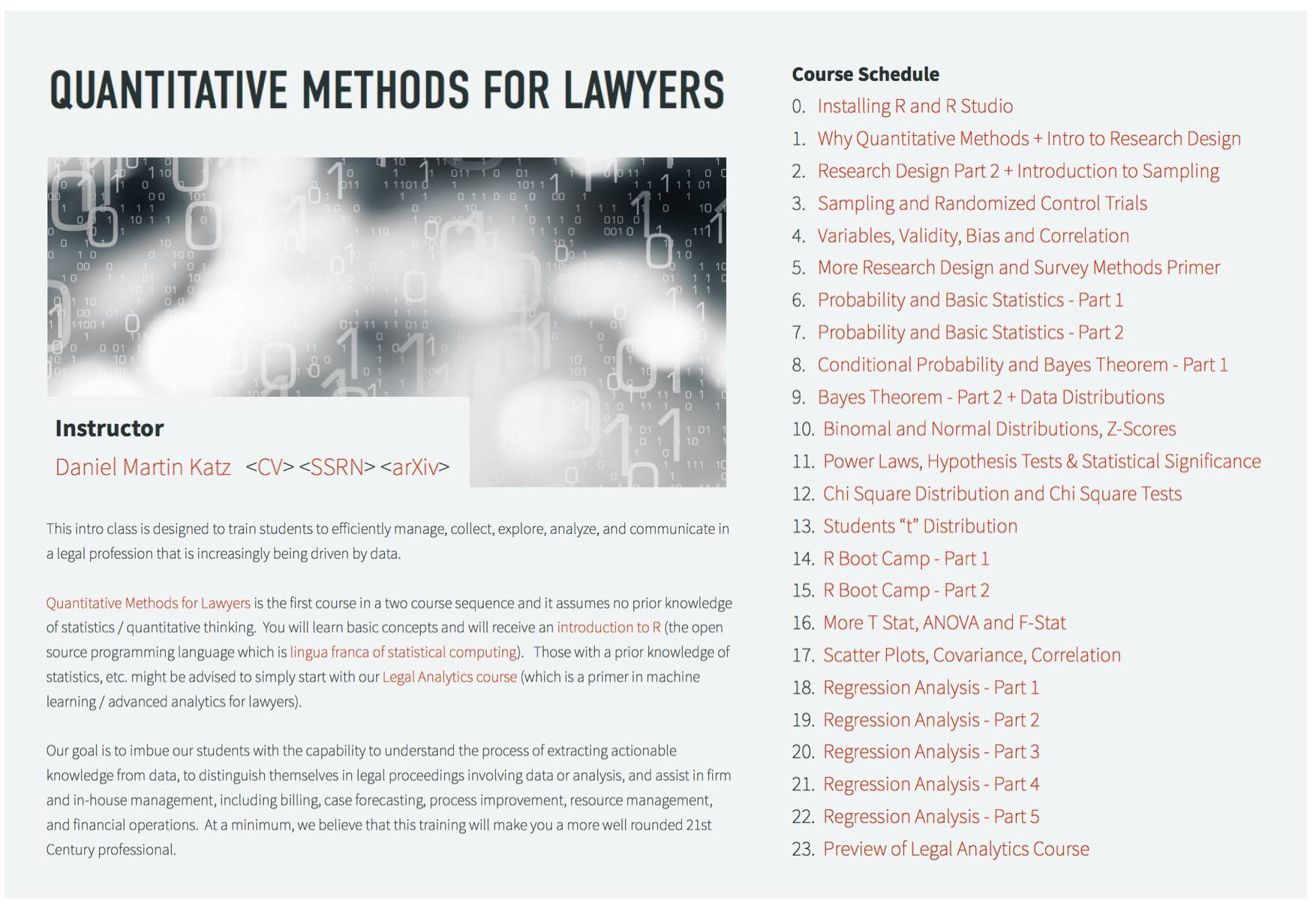 Quantitative Methods for Lawyers is the first course in a two course sequence and it assumes no prior knowledge of statistics / quantitative thinking. You will learn basic concepts and will receive an introduction to R (the open source programming language which is lingua franca of statistical computing). Those with a prior knowledge of statistics, etc. might be advised to simply start with our Legal Analytics course (which is a primer in machine learning / advanced analytics for lawyers that I teach with Michael Bommarito).
Quantitative Methods for Lawyers is the first course in a two course sequence and it assumes no prior knowledge of statistics / quantitative thinking. You will learn basic concepts and will receive an introduction to R (the open source programming language which is lingua franca of statistical computing). Those with a prior knowledge of statistics, etc. might be advised to simply start with our Legal Analytics course (which is a primer in machine learning / advanced analytics for lawyers that I teach with Michael Bommarito).
Tag: statistics and law
R Boot Camp – Part 1 in Quantitative Methods for Lawyers (Professor Daniel Martin Katz)
Today we start our R Boot Camp in Quantitative Methods for Lawyers.
It should be fun! 🙂
In total, there will be three set of slides in this multi-day bootcamp designed to introduce students to the logic of R, the basic roadblocks such as loading data and cleaning data, loading various R packages, running basic commands, shifting out of default command settings, plotting data, conducting statistical tests, etc. Later in the course we will use R for regression analysis, etc.
For anyone who might be interested, the Full Course Page including all slidedecks is located here. For help on the installation of R and the RStudio IDE please check out my Loading R/RStudio Bonus Module.
A Nice Visual Presentation of Simpson’s Paradox (via Vudlab @ UCBerkeley)
 “In 1973, the University of California-Berkeley was sued for sex discrimination. The numbers looked pretty incriminating: the graduate schools had just accepted 44% of male applicants but only 35% of female applicants. When researchers looked at the evidence, though, they uncovered something surprising:
“In 1973, the University of California-Berkeley was sued for sex discrimination. The numbers looked pretty incriminating: the graduate schools had just accepted 44% of male applicants but only 35% of female applicants. When researchers looked at the evidence, though, they uncovered something surprising:
If the data are properly pooled…there is a small but statistically significant bias in favor of women.
By “properly pooled,” the investigators at Berkeley meant “broken down by department.” Men more often applied to science departments, while women inclined towards humanities. Science departments require special technical skills but accept a large percentage of qualified applicants. In contrast, humanities departments only require a standard undergrad curriculum but have fewer slots.”
